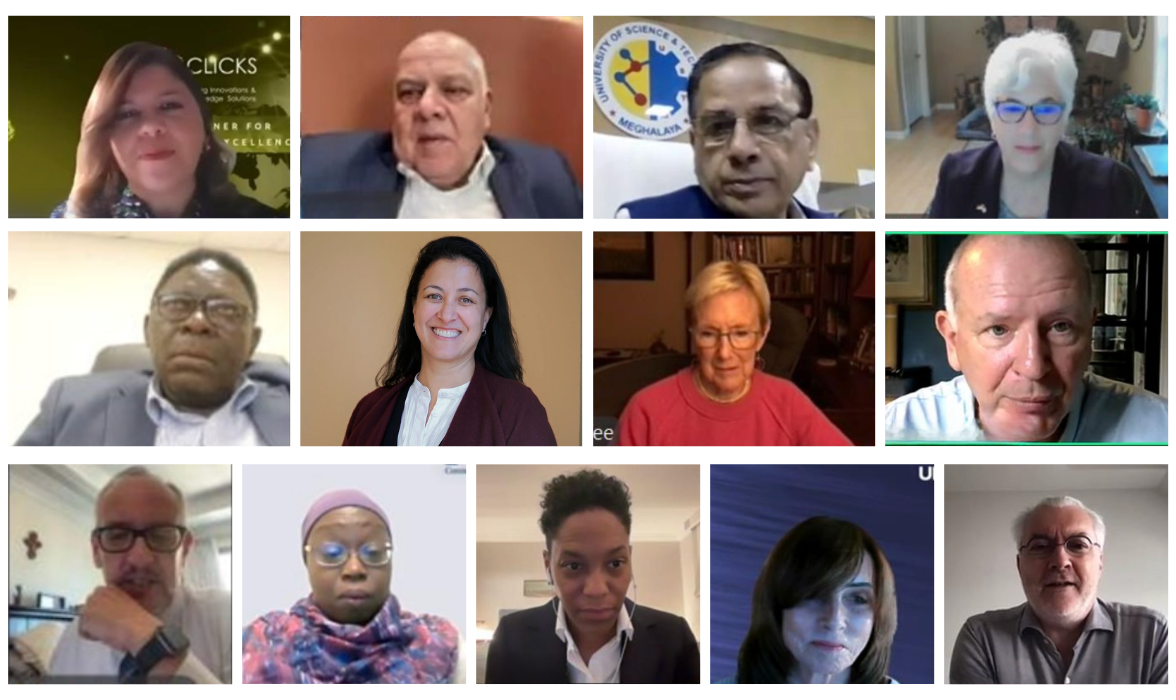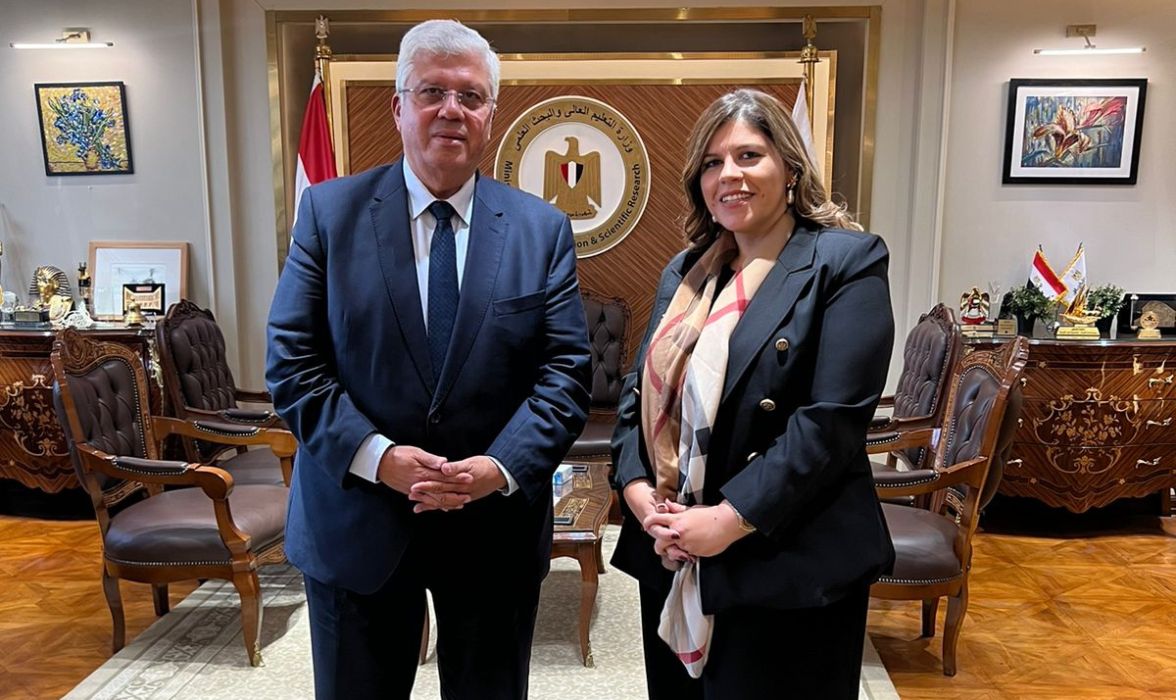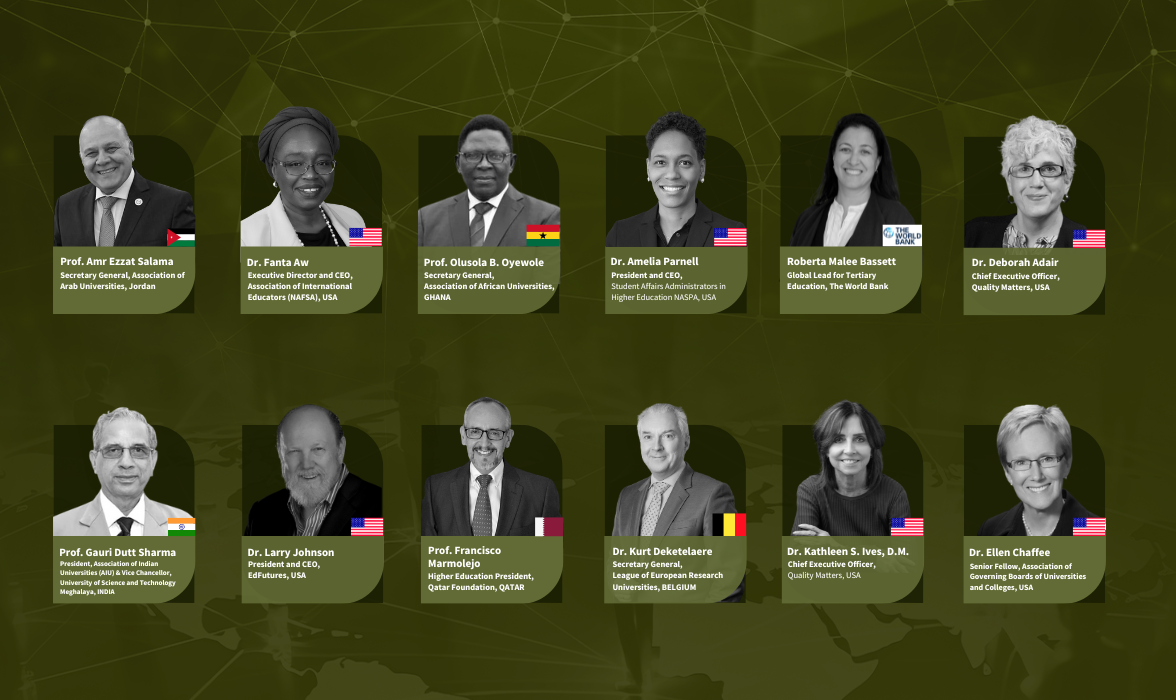Dubai, 6th February, 2024
The Center for Learning Innovations and Customized Knowledge Solutions (CLICKS), in partnership with the Association of African Universities, organized an online session on February 5th , from 16:00 to 18:00 in Ghana, titled “TRENDS SHAPING THE FUTURE OF HIGHER EDUCATION: A PATH FORWARD WITH CLICKS.” With participants spanning 25 countries and representing 32 higher education institutions from across the African Continent.
The session aimed to achieve two primary objectives. Firstly, it aimed to address critical global trends affecting higher education, such as technological advancements like AI, learning analytics, robotics, and blockchain, alongside broader issues like globalization, internationalization, and the focus on skill-based curriculum and pedagogy. The second aim was to share CLICKS’ comprehensive approach in closely collaborating with the sector to address the numerous emerging trends impacting higher education, particularly focusing on the unique needs, priorities, and challenges of individual universities and regions.
Dr. Narimane Hadj-Hamou, CEO and Founder of CLICKS, shared the stage with Prof. Oyewole Olusola Bandele, Secretary-General of the Association of African Universities (AAU). Their presentations delved into the most pressing emerging trends impacting higher education, with Prof. Oyewole emphasizing the African continent’s context, and Dr. Narimane providing a global perspective. Dr. Narimane explored the implications of these trends on the sector, underscoring the necessity for clear frameworks and strategies at macro and micro levels to address them.
In the second part of Dr. Hadj-Hamou’s intervention, she offered a deeper understanding of CLICKS’ activities before opening the floor to participants. This facilitated a vibrant exchange of ideas, allowing participants to share insights and pose questions.
In this context, Dr. Hadj-Hamou stated, “We are excited about the prospect of collaborating with universities in Africa. We hope this session will mark the beginning of an ongoing dialogue with the ministry and universities to gain a better understanding of the particularities and needs of higher education in Africa.”







